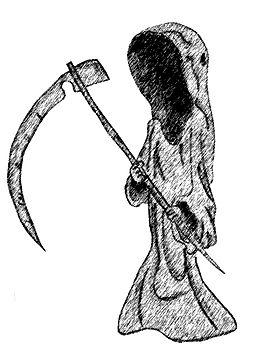 Swiss theologian Hans Küng may be about to commit suicide.
Swiss theologian Hans Küng may be about to commit suicide.
Since the Second Vatican Council, Küng has been fighting against the Catholic Church’s teachings—arguing for a married priesthood, a decentralized church, and birth control. When he stubbornly challenged the idea of papal infallibility in 1979, the Vatican stripped him of his license to teach Catholic theology. He was named professor of ecumenical studies by the University of Tübingen, and has continued to self-identify as a “Catholic priest in good standing”, even while publishing books and articles which conflict with the teaching of the Church.
Now, though, the dissident theologian seems to be on the verge of the greatest rebellion yet: Suffering from Parkinson’s disease, he is considering ending his life by suicide, rather than waiting until his body declines into illness, pain or dementia.
The real issue, though—as with many of us—seems to be Pride. Küng is losing his eyesight and his ability to write books by hand, as has been his custom. Rather than understanding that he has dignity as a child of God, he seems to feel that it is his ability to write, to teach, that is the measure of his worth. “How much longer will my life be liveable in dignity?” he worries. “A scholar who can no longer read and write – what’s next?”
In an interview published this week, Küng insists, “I do not want to be a shadow of myself. I also don’t want to be sent off to a nursing home. If I have to decide for myself, please abide by my wish.”
The weakening professor has said that he doesn’t want to go to an assisted suicide center, which he calls “sad and bleak”, but would prefer to stay in his home at Tübingen in the company of his closest colleagues.
Küng argues that no one must suffer the unbearable as something sent from God. “People can decide this for themselves,” he wrote, “and no priest, doctor or judge can stop them.” He considers assisted suicide not murder, but rather a “surrendering of life” or a “return of life to the hands of the Creator.”
The Catholic Church strongly disagrees.
The Church teaches that all persons are created in the image and likeness of God; and it is this divine spark, this mirroring of the Creator, which imbues dignity for all persons, even the most infirm or humble. And to knowingly take a life, even one’s own, is to directly interfere with the plan of God, and is mortally sinful.
The Catechism of the Catholic Church explains the clear teaching which respects life, from the moment of conception to the moment of natural death. Part III, Section 2, on the Ten Commandments, explains:
Suicide
2280 Everyone is responsible for his life before God who has given it to him. It is God who remains the sovereign Master of life. We are obliged to accept life gratefully and preserve it for his honor and the salvation of our souls. We are stewards, not owners, of the life God has entrusted to us. It is not ours to dispose of.
2281 Suicide contradicts the natural inclination of the human being to preserve and perpetuate his life. It is gravely contrary to the just love of self. It likewise offends love of neighbor because it unjustly breaks the ties of solidarity with family, nation, and other human societies to which we continue to have obligations. Suicide is contrary to love for the living God.
2282 If suicide is committed with the intention of setting an example, especially to the young, it also takes on the gravity of scandal. Voluntary co-operation in suicide is contrary to the moral law.
Grave psychological disturbances, anguish, or grave fear of hardship, suffering, or torture can diminish the responsibility of the one committing suicide.
2283 We should not despair of the eternal salvation of persons who have taken their own lives. By ways known to him alone, God can provide the opportunity for salutary repentance. The Church prays for persons who have taken their own lives.
Please join with me in praying for Mr. Küng—that God will grant him the strength to endure the illness which marks this final stage of his life, and the wisdom to return to full communion with the Catholic Church and to fully embrace its teachings. When the time arrives and he leaves this earth, may God look with love upon this struggling servant, and welcome him into His kingdom.
And you may be interested in my post on the U.S. Bishops’ 2011 statement on assisted suicide, and on the death of the notorious “Dr. Death”, here.











